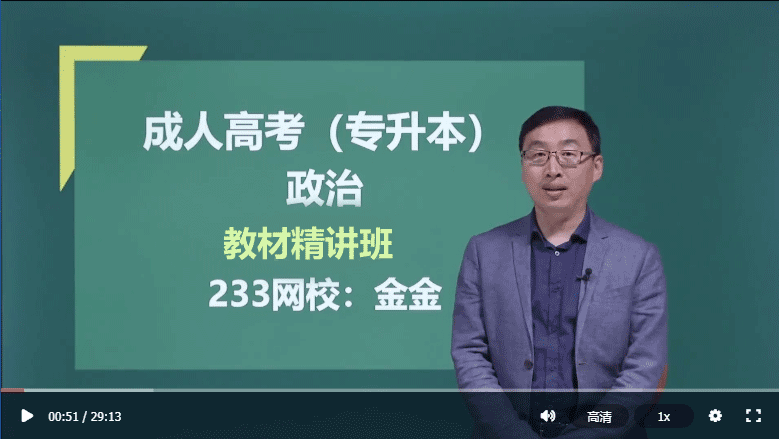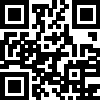цфККщЋшхІфНшБшЏшЏцБфИццЗЗцЗшЏфИ
уу1.ableяМ capableяМ competent
ууableфИКхИИчЈшЏяМцх ЗцхцфКцщчхщяМцхЗЇяМчЅшЏфИцЖщДчяМфИшЌфИцчц х ГяМчЈфНхЎшЏшЁЈчЄКшНхшЖ хКхЙГхцАДхЙГухІяМA cat is able to see in the dark. яМчЋхЈщЛцфИшНчшЇфИшЅПуяМ
ууcapable ццЛЁшЖГфИшЌшІцБчшНхяМхЏфЛЅцЏшЁЈчАхКцЅчяМфЙхЏцЏцНхЈчяМцщ цЏbe capable of +doing.чЈфНхЎшЏяМшЁЈчЄКчшНхцВЁцableшЁЈчЄКчшНххМКухІяМHe is capable of running a
ууmile in a minute. яМфЛшНхЈфИхщх шЗхЎфИшБщуяМHe is a very capable doctor. яМфЛцЏфИфНхОхЅНчхЄЇхЄЋуяМ
ууcompetent цтшфЛЛтяМтхц МтяМцхшПфИфИццЏчшЎчЛчяМфНфИцЏшЖ чОЄчшНхухІяМ
ууA doctor should be competent to treat many diseases. яМхЛчхКшЏЅшНцВЛхЄчЇч уяМ
уу2.aboardяМ abroadяМ boardяМ broad
ууaboard хЈшЙяМцщЃцКяМшНІяМфИухІяМI never went aboard a ship.
ууabroad хЏшЏяМхЈхНхЄццЕЗхЄухІяМHe often goes abroad.
ууboard фИКхЈшЏяМфИяМшЙяМщЃцКяМшНІяМухІяМThe passengers are boarding the plane now.
ууbroad фИКхНЂхЎЙшЏяМхЎНхЙПчухІяМHe has very broad shoulders.
уу3.acceptяМ receive
ууaccept цЅхяМreceiveтцЅхАтяМтцЖхАтухІяМI received an invitation
ууyesterdayяМ but I didnтt accept it. яМцЈхЄЉццЖхАфКфИфИЊшЏЗцЌяМфНхЙЖцВЁццЅхщшЏЗуяМ
уу4.accidentяМ incidentяМ event accidentфКц ухІяМa traffic accident яМфКЄщфКц яМ
ууincidentтщхИІфКфЛЖтяМхЈцПцВЛфИчЙцхМшЕЗхНщ фКчЋЏццфКчфКфЛЖяМфКху
ууevent тфКфЛЖтяМцчЙхЋщшІчфКфЛЖяМщхИИцЏчБфЛЅхчхЊхшфКЇчччЛцяМфЙцхНхЎЖхчЄОфМчфКфЛЖу
уу5. accomplishяМ completeяМ finishяМ achieveяМ attain
ууaccomplishшЁЈцхяМхМКшАхЎцччЛцшфИцЏшПчЈухІяМBecause of his hard wordяМthings are accomplished. яМчБфКфЛчхЊхяМфКц щНхЗВхЎцфКуяМ
ууcomplete шЁЈчЄКчЇЏцчхЎцяМцДх ЗфНхАцхЛКчухЗЅчЈччхЎцухІяМHas he complete his novel yetяМ яМфЛчхАшЏДххЎфКхяМяМ
ууfinish хИИчЈяМхцЅхЈшЏч-ingхНЂхМяМшЁЈчЄКхЈфИфИЊцДЛхЈчшПчЛшПчЈфИхЎцфКхчфИцЅцщЖцЎЕухІяМIтll finish the job alone. яМцшІчЌшЊхЎцшПщЁЙхЗЅфНуяМ
ууachieve хЎцяМхЎчАяМхМКшАщшПхЊхшшООхАчЎчухІяМYou will achieve success if you work hard.
ууAttainшООхАяМхЎчАяМхИИчЈфКфИшЌфККчшНхфИцшООхАччЎчухІяМGreater efforts are needed before we can attain our goals.
уу6.accurateяМ correctяМ exactяМ precise
ууaccurateхчЁЎчяМчухІяМClocks in railway stations should be accurate.яМчЋшНІчЋчщхКшЏЅцЏхчЁЎчуяМ
ууcorrectтцЃчЁЎчтяМцчЌІхфИхЎчц хцххяМхЋцтц щшЏЏчтцхГухЎчхфЙшЏцЏ
ууincorrectяМ wrong.exactтчтяМтцАхЅНчтяМцЏтхЄЇфНфИцЃчЁЎтцДшПфИцЅяМшЁЈтфИцЏЋфИхЗЎту
уухЎчхфЙшЏцЏinexact.preciseхМКшАттяМтчВОхЏту
уу7.accuseяМ chargeяМ sue
ууaccuse цшДЃяМццЇяМхИИфИof цщ ухІяМHis boss accused him of carelessness.
ууcharge хИИфИwithцщ ухІяМThe police charged the driver with reckless driving.
ууsue хИИфИfor цщ ухІяМSmith sued his neighbor for damaging his house.
уу8.achieveяМ acquireяМ requireяМ inquire
ууachieveяМцххАяМхЎцяМхЎчАухІяМHe will never achieve anything unless he
ууworks harder. яМхІфЛфИхЊххЗЅфНяМхАфМфИфКц цуяМ
ууacquireххОяМшЗхОяМхІхАухІяМacquire knowledge яМшЗхОчЅшЏяМ
ууinquireцхЌяМшЏЂщЎухІяМinquire a personтs nameяМщЎфИфИЊфККчхЇхяМ
ууrequireщшІухІяМWe require more help. яМцфЛЌщшІцДхЄчхИЎхЉуяМ
уу9.actяМ actionяМ deed act чЈфНхшЏцЖяМфИactionяМ deedххЏшЁЈтшЁфИКтяМтфИОхЈтуActццЖщДшОччфИЊфККшЁхЈцшЁфИКяМхМКшАчЛцухІяМThe farmer caught the boys in the act of stealing his apples. яМххЄЋхЈхЉхфЛЌцЃхЗфЛчшЙццЖцфЛфЛЌцфНфКуяМ
ууactionшОцЃхМяМхОхОцфИцЂх хЋфИфИЊцЅщЊЄяМфИцчЛцЖщДшОщПчшЁфИКцшЁхЈяМхМКшАшЁфИКчшПчЈухІяМActions are more important than words. яМшЁхЈцЏшЏшЈцДщшІуяМ
ууdeedфИКцЃхМчЈшЏяМхЄцфМхЄЇчяМцОшчяМцфККчшЁфИКухІяМThey thanked him for his good deeds. яМфЛфЛЌцшАЂфЛхчхЅНфКуяМ
уу10.actualяМ trueяМ realяМ genuine actual цфИКтхЎщ чтяМтчАхЎчтяМццхНЂхЎЙчфКчЉхЈфКхЎфИхЗВчЛхчцххЈяМшфИцЏфЛ хЈчшЎКфИхЏшНхчцххЈчу
ууtrueтчхЎчтяМцфИхЎщ чИчЌІяМшщшху
ууgenuine тччтяМтщхх чтяМтшДЇчфЛЗхЎчтяМхМКшАцЃхЎшщхчу
уу11.adequateяМ enoughяМ sufficient
ууadequate шЖГхЄчяМццАщхЄяМщхщшІчцАщу
ууenoughшЖГхЄчяМццАщхЄяМшЖГхЄцЛЁшЖГцчЇчЎчццПцу
ууsufficientхenoughяМхИИхЏфКцЂфНПчЈуфНsufficientццАщхЄяМшЖГхЄцЛЁшЖГцчЇщшІяМхЈхЃшЏфИхИИчЈenoughяМхЈфЙІщЂшЏфИхИИчЈsufficientяМхЈфИцшЏхЎцЖхЄчЈenough.EnoughхЏцОхЈшЂЋфПЎщЅАхшЏхяМфИхЏфНхЏшЏяМsufficientхфИхЏшПфЙчЈу
чИх ГцЈш
- 2017хЙДцфККщЋшфИхцЌшБшЏшшЏххЙДчщЂфНцчВОщцБцЛ03-28
- 2017хЙДцфККщЋшфИхцЌшБшЏшшЏххЙДчщЂфНцчВОщфЙ03-24
- 2017хЙДцфККщЋшфИхцЌшБшЏшшЏххЙДчщЂфНцчВОщх Ћ03-24
- 2017хЙДцфККщЋшфИхцЌшБшЏшшЏххЙДчщЂфНцчВОщфИ03-24
- 2017хЙДцфККщЋшфИхцЌшБшЏшшЏххЙДчщЂфНцчВОщх 03-24
| ПЮГЬзЈвЕУћГЦ | НВЪІ | дМл/гХЛнМл | УтЗбЬхбщ | БЈУћ |
|---|---|---|---|---|
| гяЮФ(ИпЦ№Еу)ОЋНВАр | ЕЫО§УФ | ЃЄ150 / ЃЄ150 |  |
БЈУћ |
| гЂгя(ИпЦ№Еу)ОЋНВАр | Monica | ЃЄ150 / ЃЄ150 |  |
БЈУћ |
| Ъ§бЇ(ЮФ)ОЋНВАр | ЭѕЗМ | ЃЄ150 / ЃЄ150 |  |
БЈУћ |
| Ъ§бЇ(Рэ)ОЋНВАр | ТогзжЅ | ЃЄ150 / ЃЄ150 |  |
БЈУћ |
| ДѓбЇгяЮФ(зЈЩ§БО)ОЋНВАр | ХЗбєАиСи | ЃЄ150 / ЃЄ150 |  |
БЈУћ |
| гЂгя(зЈЩ§БО)ОЋНВАр | Monica | ЃЄ150 / ЃЄ150 |  |
БЈУћ |
| ИпЕШЪ§бЇ(вЛ)(зЈЩ§БО)ОЋНВАр | ЭѕЬЮ | ЃЄ150 / ЃЄ150 |  |
БЈУћ |
| ИпЕШЪ§бЇ(Жў)(зЈЩ§БО)ОЋНВАр | ТогзжЅ | ЃЄ150 / ЃЄ150 |  |
БЈУћ |
ИЈЕМПЮГЬ
- ИпЦ№Еу-Ъ§бЇ(ЮФЪЗВЦОРр)

- ЭѕЗМРЯЪІ
 УтЗбЪдЬ§
УтЗбЪдЬ§
- ИпЦ№Еу-гЂгя

- MonicaРЯЪІ
 УтЗбЪдЬ§
УтЗбЪдЬ§
- зЈЩ§БО-ДѓбЇгяЮФ

- ХЗбєАиСиРЯЪІ
 УтЗбЪдЬ§
УтЗбЪдЬ§
АрМЖНщЩм
ЬзВЭАќКЌЃКзЈЩ§БОVIPАр/ИпЦ№ЕуVIPАрЃЈКЌОЋНВ+ецЬтНтЮі+ФЃПМЕуЬт)
ЬзВЭгХЪЦЃК1ЁЂЫјЖЈКЫаФПМЕу
2ЁЂПМЧАЗЂЗХ2ЬзЪдЬт
3ЁЂУтЗбжибЇвЛДЮБЃеЯ
ХфЬзЗўЮёЃК1ЁЂУтЗбЬтПт
2ЁЂПЮГЬНВвх+ПЮМўЯТди+вЦЖЏПЮЬУ







 УтЗбЪдЬ§
УтЗбЪдЬ§ 




